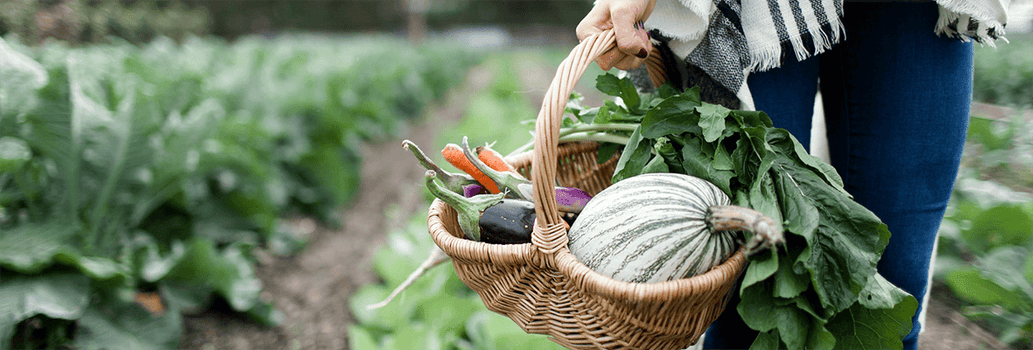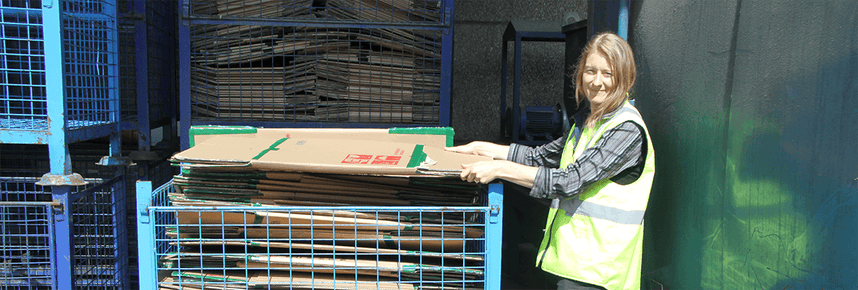
Eating green - making it sustainable
We’ve become well aware over the years that protecting our environment is a good idea. Many of the earth’s resources are limited and we’ve seen the damaging effects modern life can have on nature, and how this can in turn affect our own quality of life.
But for some reason, we often think of looking after the environment as an isolated subject. We do things like recycle and try to cut down on car emissions because they’re good for the environment. It’s simple and easy to adopt everyday behaviours like turning off lights when there’s no one in the room or getting a blanket instead of turning on the heater.
But there’s something else we also do many times every day that has a big impact on the environment: we eat.
Eating and sustainability
As countries around the world revisit their dietary guidelines, there’s been much debate on where the topic of the environment fits in.
In 2015, the US Dietary Guidelines Advisory Committee submitted the Scientific Report of the 2015 Dietary Guidelines Advisory Committee, which called for a section on food sustainability to be included in the 8th edition of the US dietary guidelines.
The Netherlands Health Council encourages a more plant-based way of eating for a smaller ecological impact. And Sweden’s recently released Find your way to eat greener, not too much and be active, published by the National Food Agency, includes information on the environmental impact in its consumer information for all the food choices it recommends.
Why does it matter?
As Find your way says, “Economising on the Earth's resources will ensure we have good food to eat in the future.” It’s about making good choices now so that we will still have choices in the future.
Food production has a huge impact on the environment, and the production of some foods is much more damaging than others. So it makes sense that when we’re making the choices that are healthiest for us, we should also consider which of them are healthiest for the planet.
Top tips
So what should we be looking for if we want to make healthy and sustainable food choices?
Fill up with plant foods
Filling our plates with plant foods should be a priority at every meal—currently, fewer than 7% of Australian adults consume the recommended daily amount of vegetables. They’re packed with nutrients and aren’t very energy dense, making them really difficult to overeat. The production of whole plant foods also generally has much less of an environmental impact than animal foods.
Eat seasonally
Seasonal produce is usually the cheapest and best quality, making it the obvious choice, but it's also the most sustainable choice. Seasonal produce isn’t stored as long and generally isn’t transported as far as out-of-season produce, lessening its environmental impact. Imported, out-of-season produce also requires much more transportation which adds to the environmental impact of its production.
If you choose to eat animal foods, eat appropriate amounts
Did you know the recommended serving size for a piece of red meat is about the size of a deck of playing cards?
In developed countries like Australia and New Zealand it’s not unusual to see a piece of meat dominating a dinner plate, but in many healthy traditional diets, meat is more like a condiment, only served on special occasions or not at all. So for a better environmental choice, keep servings of meats within the recommended amounts.
For the best environmental choice, enjoy a varied, healthy, plant-based diet and replace the meat in your meals with environmentally friendly and nutritious plant options such as legumes, nuts and seeds. A cup of cooked legumes such as lentils or chickpeas counts as a standard serving.
Plan your meals and food shopping
Research shows that Australians throw out up to 20% of the food they purchase. The production of that food has an impact on the environment, and so does its disposal.
Planning your meals before going shopping and only buying as much as you need can help reduce household food waste, helping the environment and saving you money.
First published in Sanitarium’s Good food news.
)

The latest nutrition advice, plus health and wellness tips delivered to your inbox monthly

